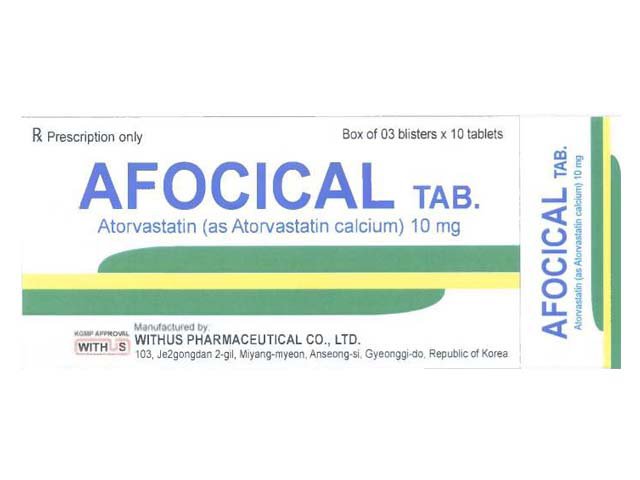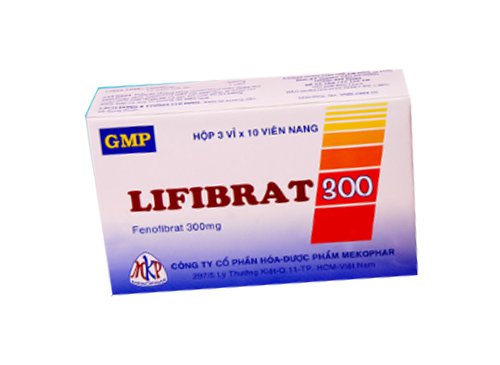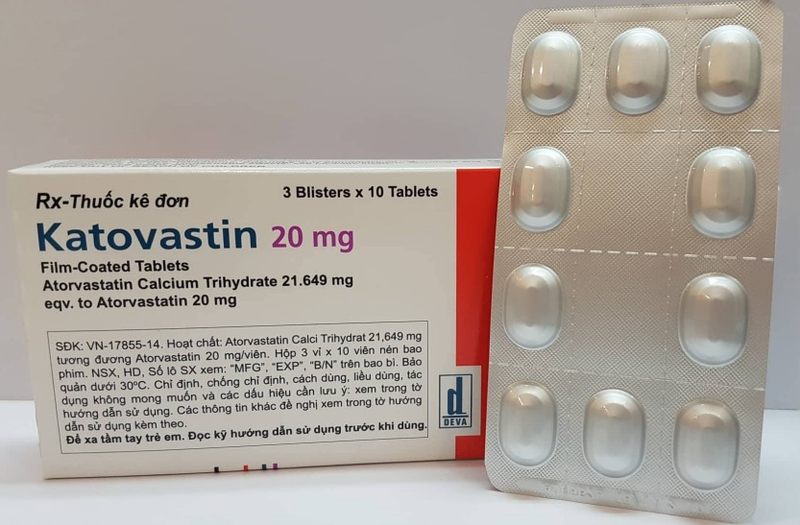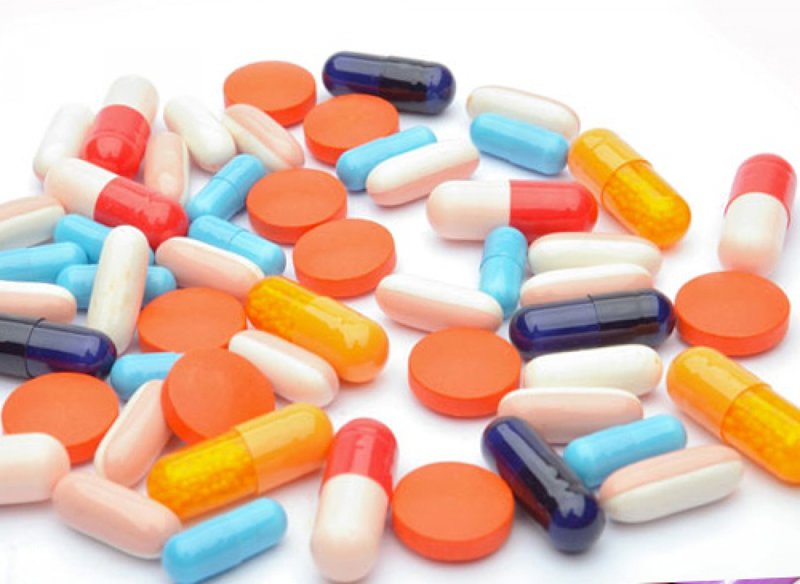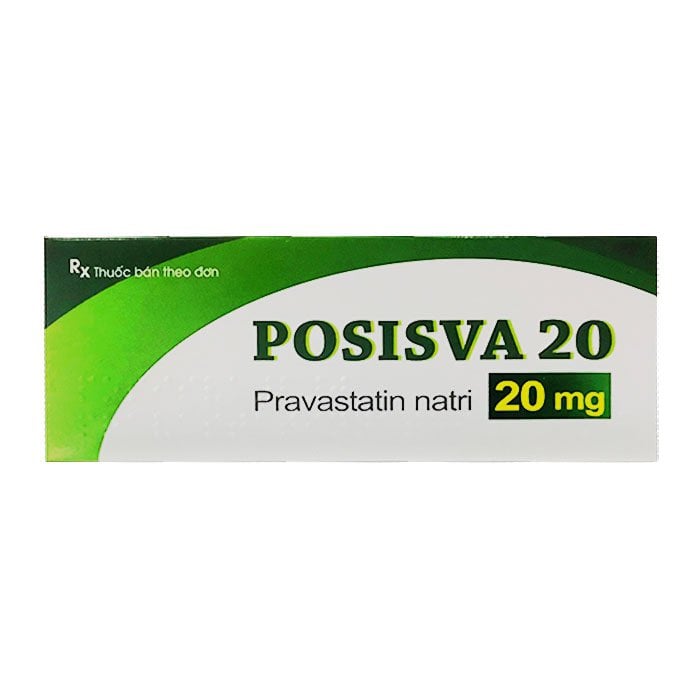What supplements should be taken after the age of 40 to enhance health?
This is an automatically translated article.
From the age of 40 onwards, the resistance of the human body begins to decline, the risk of diseases of cancer, heart disease, diabetes... is increasing. Therefore, after the age of 40, what supplements should be taken to protect their health against the risks of disease is a matter of concern.
1. Notes when supplementing nutrients after the age of 40
Entering the age of 40, people have a high risk of non-communicable diseases such as diabetes, hypertension, chronic obstructive pulmonary disease (COPD)... Human aging is increasing, the influence of environmental factors, improper nutrition and lifestyle such as drinking a lot of alcohol, beer, smoking, sedentary activities, stress... increase risks of diseases.
According to recommendations from doctors, entering middle age, the goal of human nutrition is to slow down the aging process, maintain bone and muscle mass, reduce the risk of disease and improve the quality of life. living. Establishing nutrition as early as this stage can reduce the risk of non-communicable diseases by more than 40%, including cancer.
Some notes when supplementing nutrition for 40-year-olds is to provide adequate amounts and balance of nutrients through food groups containing proteins, lipids, glucose, vegetables, fruits, milk... Nutrition Long-term protein deficiency will reduce muscle mass, reduce immune function, malnutrition, slow wound healing... Add nutritious milk daily and should use milk without sugar, without much fat, Formula milk contains colostrum to help strengthen resistance, aid digestion, and restore ligaments and muscles.
When entering your 40s, your nutrition should limit saturated fats from animal fats, margarine, coconut oil, palm oil... Instead, you should use unsaturated fats from sesame oil, olive oil, soybean oil... use slow-metabolizing carbohydrates such as wheat, brown rice, potatoes, corn and limit products from cane sugar and drink soft drinks...
2. What should be supplemented after the age of 40?
Nutrition is important at any age and it becomes even more special when you enter your 40s. Therefore, after the age of 40, what should be added to be good for the body is a matter of concern.
Some nutrients are recommended by experts in the diet at 40 years old as follows:
2.1. Calcium is the answer to the question of what to supplement after the age of 40?
Calcium is a mineral involved in the structure of bones and teeth of the body and plays an important role in other basic functions such as nerve activity, blood vessels, muscle contraction as well as other biochemical reactions. The main source of calcium for the body is from foods, most of this mineral is stored in the bones. Therefore, when the amount of calcium supplied from the diet is not enough, the body will steal calcium from the bones and make the bones weak.
Studies show that from the age of 40 onwards, your body tends to lose more calcium than it absorbs. This is also considered to be the reason why the elderly, especially post-menopausal women, are prone to osteoporosis, bone loss increases the risk of fractures. According to recommendations from nutritionists, men over 70 years old and women over 50 years old need about 20% more calcium than adults. Foods containing a lot of calcium can be mentioned as cheese, milk, yogurt...
Studies show that from the age of 40 onwards, your body tends to lose more calcium than it absorbs. This is also considered to be the reason why the elderly, especially post-menopausal women, are prone to osteoporosis, bone loss increases the risk of fractures. According to recommendations from nutritionists, men over 70 years old and women over 50 years old need about 20% more calcium than adults. Foods containing a lot of calcium can be mentioned as cheese, milk, yogurt...
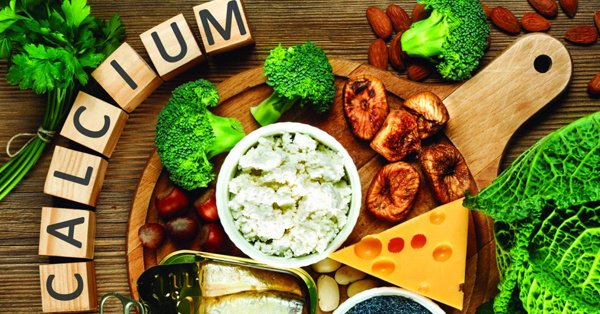
Giải đáp sau tuổi 40 nên bổ sung gì?
2.2. Vitamin D
Vitamin D plays an important role in the absorption of Calcium into the body. Therefore, vitamin D is one of the essential nutrients if you are wondering what you need to supplement at the age of 40 to keep your body healthy and fight disease.
This nutrient has an important role in preventing osteoporosis, helping the nervous system, muscles and immune system work better. The body's vitamin D deficiency is prone to diseases such as diabetes, breast cancer, multiple sclerosis, heart disease, colorectal ... especially in middle age.
Most vitamin D is synthesized from sunlight, however this synthesis decreases with age. Therefore, supplementing vitamin D through daily nutrition is extremely necessary when you enter the age of 40. Some foods contain a lot of vitamin D such as salmon, cereals, fortified milk...
2.3. Vitamin B12
Vitamin B12 is a micronutrient that participates in the body's blood-forming and nervous system processes. In children and adults, most of the vitamin B12 needed by the body is provided by the daily diet. However, in middle age, especially the period of 50 years or older, the acid level in the stomach decreases, making the body's ability to absorb this vitamin reduced. Therefore, at the age of 40 or older and especially before the age of 50 is the best time to supplement vitamin B12 from nutrition, functional foods... Foods containing a lot of vitamin B12 such as chicken meat , eggs, milk, fish...
2.4. Magnesium
Magnesium is one of the essential minerals if you still wonder what to add at the age of 40. This is a micronutrient that participates in the process of making proteins and bones, has a role in stabilizing blood pressure and blood sugar in the body. This function is especially important for women aged 40 years and older, who are at increased risk for hypertension as a result of normal aging.
Studies also show that magnesium deficiency is associated with diseases such as cardiovascular disease, diabetes... Besides, this micronutrient also helps increase the body's calcium absorption efficiency and plays a role in function of the body's muscles, heart, and nervous system. Magnesium is found in many foods such as avocados, nuts, green vegetables, beans, soybeans...
2.5. Potassium
Although only in a small amount in the body, potassium plays a very important role in almost every organ in the body including the kidneys, heart, nervous system and muscles. This micronutrient also plays a role in stabilizing blood pressure, preventing osteoporosis and stroke.
Research from scientists shows that in premenopausal women eating more foods rich in potassium reduces the risk of stroke. Therefore, 40-year-old people need to supplement the necessary amount of potassium for the body. The supplementation of this micronutrient should be done through a reasonable and healthy diet such as bananas, mustard greens, lentils, sweet potatoes... and should not be arbitrarily supplemented with potassium without the prescription of the doctor. doctor. Because an overdose of potassium can cause serious side effects on the digestive system and heart, especially causing arrhythmias.
2.6. Zinc
Zinc is a micronutrient that is good for taste, smell, and plays an anti-inflammatory and anti-infective role (high-risk conditions seen in the elderly). This micronutrient is provided a lot from foods such as oysters, minced meat, cereals...
2.7. Selenium
Selenium plays a role in protecting the body's cells from the risk of inflammation and infection, plays a role in helping the thyroid gland work better. Besides, this is also a mineral that helps prevent common diseases in the elderly such as thyroid disease, memory loss, cancer...
2.8. Folate
Folate and folic acid are two existing forms of vitamin B9. They play a role in cell growth, stroke, and some cancers. Therefore, supplementing with folate to meet the body's needs is extremely necessary in people 40 years of age and older. Folate is found in many foods such as green leafy vegetables, seeds, beans...
2.9. Fiber
Fiber prevents constipation, plays an important role in the digestive system and is a group of substances that should be supplemented in people 40 years of age and older. In addition, fiber also helps prevent stroke, lower cholesterol and blood sugar, which are diseases that the elderly often suffer. Recommendations from nutritionists show that people aged 50 and over should get at least 21g of fiber per day in women and 30g in men, equivalent to 8-10 servings of vegetables or 6-8 servings of whole grains. whole grain.
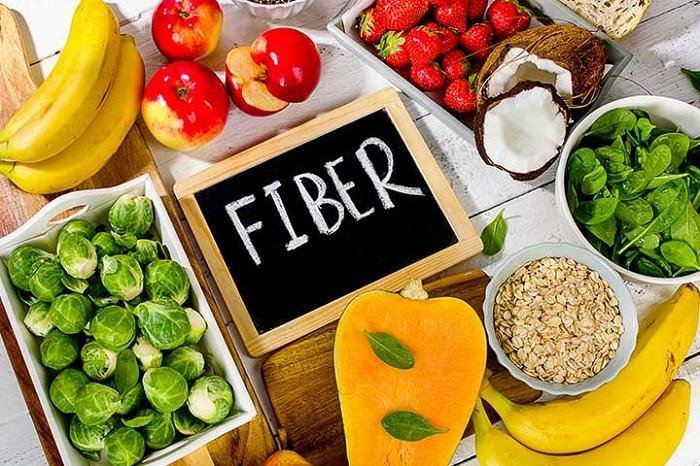
Ăn nhiều chất xơ là giải đáp cho thắc mắc sau tuổi 40 nên bổ sung gì
2.10. Omega – 3
Omega-3 is a fatty acid that the body cannot synthesize and can only be supplied from outside. Therefore, they are essential for the body, playing an important role in the brain and eyes. Omega-3 helps protect the body from the risk of common diseases in the elderly such as hypertension, hyperlipidemia, arthritis, Alzheimer's, macular degeneration that can cause blindness. Therefore, they are one of the indispensable nutrients that 40-year-olds need to supplement.
According to recommendations, the amount of omega-3 needed in healthy people is 500 mg per day, the need for this fatty acid is higher than in people with heart disease (about 800-1000 mg/day) and people with hyperlipidemia (range from 2000 to 4000 mg/day). Omega-3 is provided in many foods such as walnuts, fish, flaxseeds...
According to recommendations, the amount of omega-3 needed in healthy people is 500 mg per day, the need for this fatty acid is higher than in people with heart disease (about 800-1000 mg/day) and people with hyperlipidemia (range from 2000 to 4000 mg/day). Omega-3 is provided in many foods such as walnuts, fish, flaxseeds...
2.11. Probiotics
Probiotics are probiotics that are good for the intestinal system. They play a role in keeping the intestinal system healthy, helping to reduce the risk of cardiovascular disease, stroke, diabetes... Probiotics come in many strains and each strain has its own benefits such as helping to prevent prevent diarrhea, control weight... Therefore, the nutrients that 40-year-olds need to supplement cannot lack probiotics. This beneficial bacteria is supplemented a lot from dairy products and fermented soybeans...
From the age of 40 onwards, the human body enters a period of many changes in both the activity and function of the organs. organs, the immune system in the body. Therefore, 40-year-old people need to supplement with adequate nutrients to help protect the body against the risk of diseases from outside. Supplementing vitamins, minerals and nutrients should be done through food, daily diet instead of medication. A proper and balanced diet will help your body get all the vitamins and minerals it needs.
Please dial HOTLINE for more information or register for an appointment HERE. Download MyVinmec app to make appointments faster and to manage your bookings easily.
This article is written for readers from Sài Gòn, Hà Nội, Hồ Chí Minh, Phú Quốc, Nha Trang, Hạ Long, Hải Phòng, Đà Nẵng.

